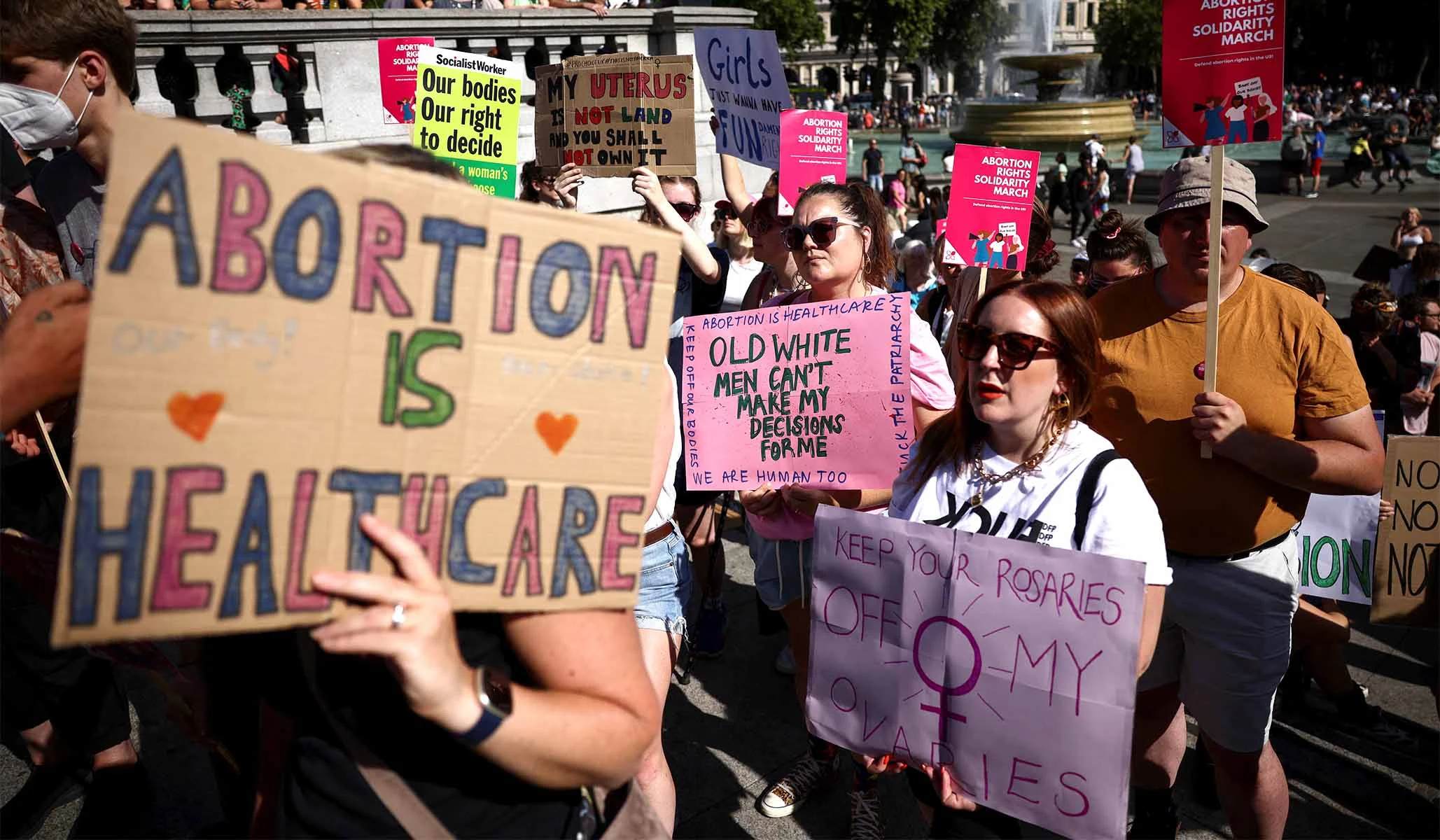British abortion law is unique in that it is framed in terms of exceptions rather than rights. The 1967 Abortion Act legalized abortion under specific circumstances, but did not repeal the preexisting abortion ban. As a result, if the necessary conditions are not met, abortion remains a criminal offense under the 1861 Offences against the Person Act with a potential penalty of life imprisonment.
While the exceptions have become permissive enough to accommodate most abortions, the British maintain that abortion is a necessary medical procedure administered at the discretion of medical professionals. The law permits abortion before 24 weeks if two registered medical practitioners believe that the pregnancy poses a risk to the physical or mental health of the pregnant woman. After 24 weeks, abortion is allowed only if two practitioners believe that the pregnancy poses a risk to the life of the pregnant woman, or if the child would be born with physical or mental abnormalities that would seriously handicap them, or if it is necessary to prevent grave permanent injury to the physical or mental health of the pregnant woman.
During the coronavirus pandemic, temporary measures were introduced in England, Scotland, and Wales that allowed for access to early abortion-inducing pills through the tenth week of pregnancy. The pills could be taken at home after a phone consultation with a medical practitioner.
However, there are risks associated with this method, including the physical risk of an undiagnosed ectopic pregnancy, psychological risk when coercion by a partner or family member goes undetected, and the legal risk of making a false statement about the trimester of pregnancy.
Carla Foster, age 44, was convicted of “child destruction” in 2020 after consuming abortifacient drugs provided by the National Health Service and giving birth to her daughter, Lily, who was stillborn. Foster had falsely claimed to be around seven weeks pregnant when she was actually well into her third trimester. The court accepted that Foster was conflicted and desperate to conceal her pregnancy, but she nonetheless broke the law and was sentenced to 28 months’ imprisonment. The sentence has sparked outrage and advocacy for full decriminalization of abortion.
While it is true that desperate people often seek out late-term abortions, the same is true of women who commit infanticide. In March 2019, a 15-year-old girl killed her newborn to prevent the discovery of her pregnancy and the birth. The outcome in both cases was the death of an infant who could have been adopted by a loving family.
Abortion laws in the U.K. are inconsistent, with babies with Down syndrome eligible for abortion up until birth. The question is not whether abortion should be legal in all nine months of pregnancy, as it already is, but whether it should be regulated by medical professionals or effectively deregulated under decriminalization. If the latter were to occur, abortion at any stage for any reason, even carried out at home, would be permissible.
In his sentencing remarks, Justice Pepperall deemed a letter signed by various medical authorities on Foster’s behalf to be inappropriate, pointing out that his job is to apply the law and that changing the law is Parliament’s job. Regulating abortion to avoid situations like Foster’s is supposedly Parliament’s job as well.

